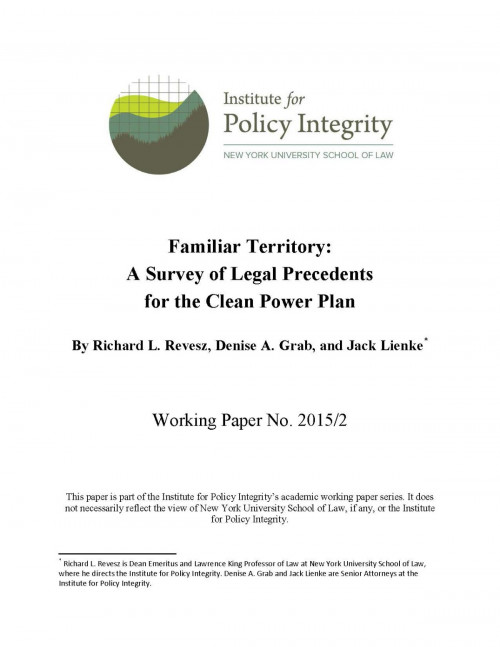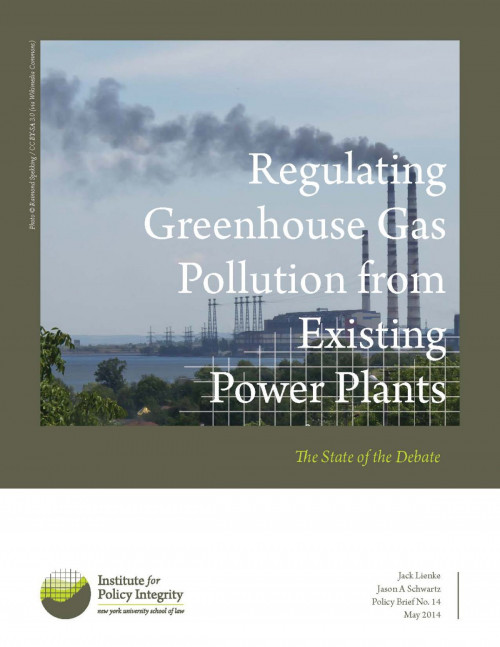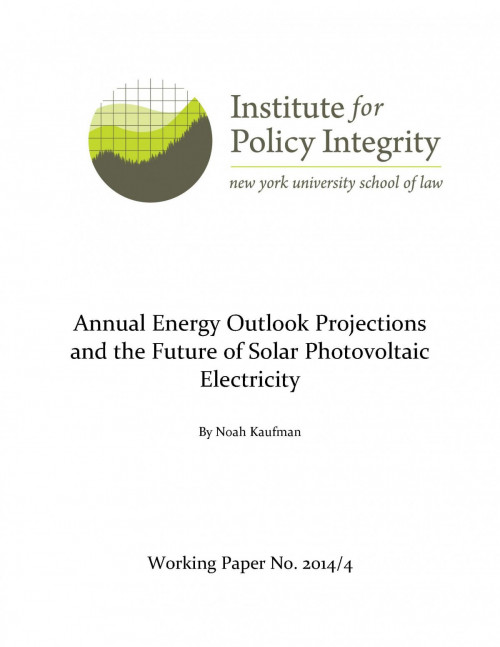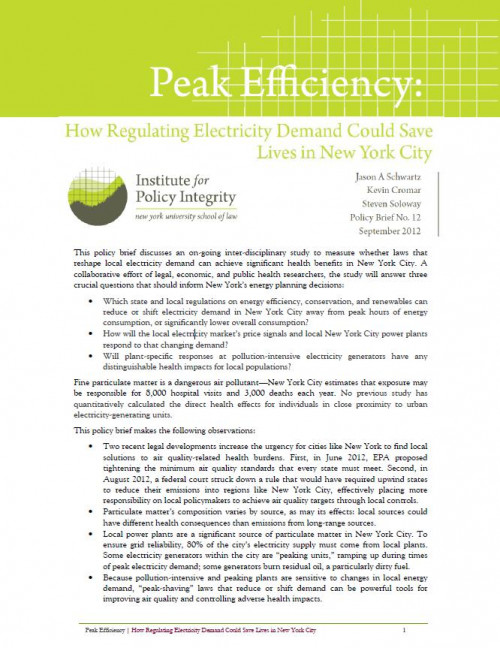-

Familiar Territory
A Survey of Legal Precedents for the Clean Power Plan
In this essay, we highlight a wide variety of regulations from the Clean Air Act’s forty-five-year history that provide substantial precedent for the flexible design of the Clean Power Plan.
-

Regulating Greenhouse Gas Pollution from Existing Power Plants
The State of the Debate
Environmentalists, industry groups, and state governments have been vocal regarding their preferences for the shape of EPA’s forthcoming rule on greenhouse gas pollution from existing power plants. In this policy brief, Jack Lienke and Jason Schwartz survey 30 public letters, white papers, presentations, and reports from these stakeholders and outline their positions.
-

Annual Energy Outlook Projections and the Future of Solar PV Electricity
The topic of this paper is the assumed growth of solar photovoltaic (PV) in current energy models, with a focus on information from Annual Energy Outlook (AEO) of the U.S. Energy Information Administration (EIA). EIA resolves the difficulty of modeling solar energy into the future by assuming its current growth will not continue. However, EIA’s assumptions on the future costs of solar PV are highly pessimistic, and its methodology would appear to bias its “Reference Case” projections toward lower growth of solar energy. Sure enough, past AEOs have systematically underestimated the future growth of solar PV. Energy modelers therefore may need to adjust the AEO forecast in order to reflect a most likely baseline trajectory for solar PV.
-

Peak Efficiency
How Regulating Electricity Demand Could Save Lives in New York City
This policy brief discusses an on-going inter-disciplinary study to measure whether laws that reshape local electricity demand can achieve significant health benefits in New York City. A
collaborative effort of legal, economic, and public health researchers, the study will answer crucial questions that should inform New York’s energy planning decisions -
_110_170_90.jpg)
Regulatory Change and Optimal Transition Relief
Grandfathering has become a common practice in regulating industries like coal power generation. But it is not clear that phasing out polluting plants is beneficial. The costs of retrofitting existing plants to comply with new standard can be higher than the compliance costs for a new plant. Since the costs of shifting to new technology must be borne at some point, (since granfathering can’t be indefinite) it might be best not to grandfather at all so that society can benefit from lower pollution levels earlier. That’s just one of the arguments examined in this working paper.
Viewing all publications in Electricity
